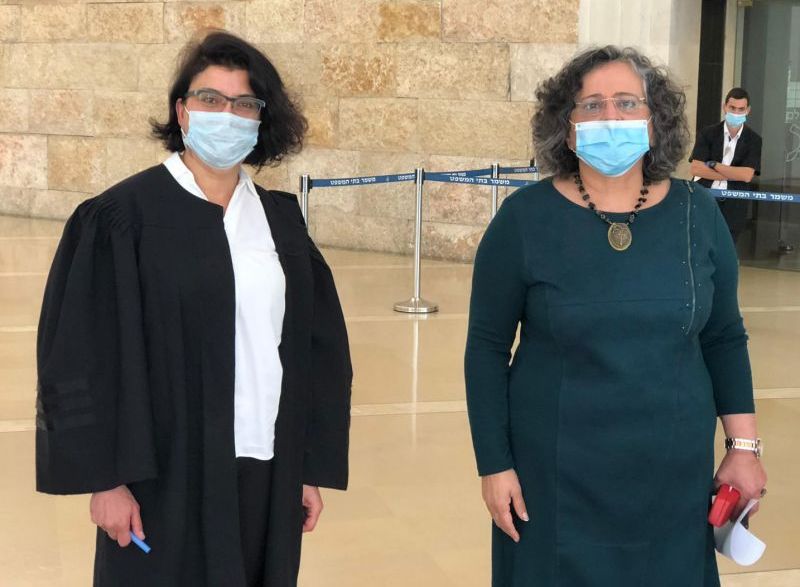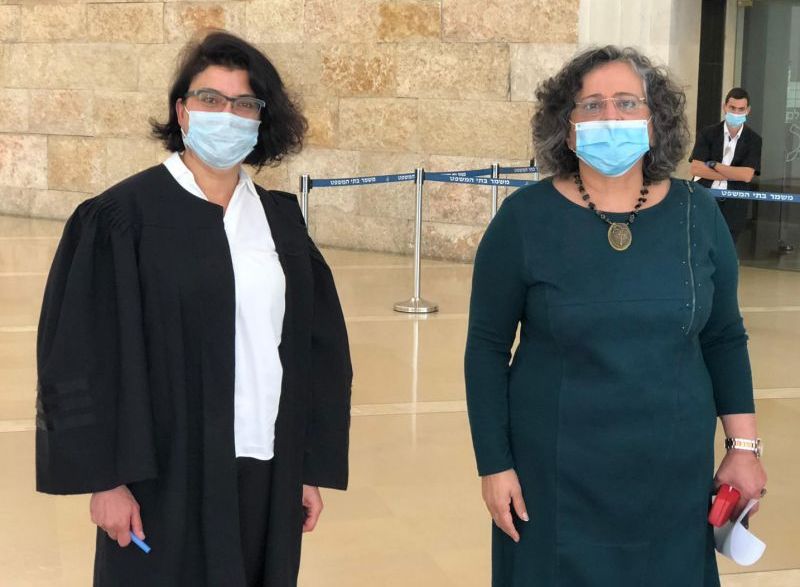MK Touma-Sliman, Adalah petition Israeli Supreme Court against new emergency regulations that let employers dismiss pregnant women
Adalah – The Legal Center for Arab Minority Rights in Israel, on behalf MK Aida Touma-Sliman (Joint List), filed an urgent petition to the Israeli Supreme Court on 12 April 2020 against new “emergency regulations” that allow employers to put pregnant women, women undergoing fertility treatments, and women on maternity leave and 60 days after their return to work, on unpaid leave without first obtaining a special permit from Israel’s Labor Ministry.
The Coronavirus (Women’s Work) - 2020 “emergency regulations” were approved last week, 6 April 2020.
These regulations illegally trump the Employment of Women Law – 1954 and apply during the period of the coronavirus. The Employment of Women Law prohibits the dismissal of pregnant workers, and discharge shortly after the female employee has given birth is also restricted unless employers obtain a special permit from the Labor Ministry. The ministry may provide this permit following a hearing in which the woman is legally represented. Women also have the right to appeal to the labor courts if they see themselves harmed by the permit.
Immediately after filing the petition, the Israeli Supreme Court set a hearing on Monday 20 April 2020 and ordered the state to provide a response 24 hours before the hearing
In the petition, Adalah Attorney Sawsan Zaher asked the Supreme Court to issue a temporary injunction freezing the implementation of the regulations and to hold an immediate hearing, as they may lead to the dismissal of thousands of women from their workplaces. The petitioners argued that there are alternatives to these emergency regulations that properly balance the needs of employers and the rights of women. These regulations disproportionately violate women’s constitutional rights to due process and access to the courts, as it will prevent women who are abroad from the right to a hearing, as well as the right to equality and dignity, as they discriminate against women based on their gender.
The petition also emphasizes that the government acted unlawfully in approving these emergency regulations, as Section 39 (d) of the Basic Law: The Government provides that: “Emergency regulations may not prevent recourse to legal action, or prescribe retroactive punishment or allow infringement upon human dignity.” Further, the petitioners argued that the government lacks legal authority to approve emergency regulations; there is a need for primary legislation, especially in light of the convening of the 23rd Knesset and the establishment of relevant committees, including the Knesset’s Special Committee on Welfare and Labor Affairs, chaired by MK Touma-Sliman. This position is also reinforced by the attorney general's opinion. In a letter to Israeli Prime Minister Benjamin Netanyahu in early April 2020, the attorney general called for an end to the continuous decree of emergency coronavirus regulations.
Adalah to Supreme Court: Stop coronavirus ‘emergency regulations’
This petition marks the fourth case brought by Adalah before the Israeli SCT challenging the government's authority to decree emergency regulations. These petitions include the cases against cellphone surveillance by the Shin Bet and the police; the prohibition on prisoners’ meetings with their lawyers and families; and a principle case, submitted with Joint List against the continuous approval of emergency regulations as such.
Later this week on Thursday 16 April 2020, the Supreme Court will hold a second hearing in the case involving the invasive surveillance practices of tracking and monitoring of citizens – both coronavirus patients and the location of persons who were in the vicinity of individuals with a positive lab result for the virus. (HCJ 2141/20, Adalah and the Joint List v. The Prime Minister, et. al (joined with HCJ 2190/20, Adv. Shahar Ben Meir v. Knesset; HCJ 2135/20, The Association for Civil Rights in Israel v. Prime Minister, and HCJ 2187/20 The Journalists’ Union in Israel v. Prime Minister). Adalah responded favorably to the state's request to allow representatives of various ministries to appear in the hearing, provided that MK Ayman Odeh, the chairman of the Joint List that petitioned with Adalah against the regulations, also be provided with an opportunity to speak for 10-15 minutes before the court on the impact of the regulations and Palestinian citizens of Israel.
Regarding the current case, MK Aida Touma-Sliman stated:
Adalah Attorney Sawsan Zaher commented that:
Case Citation: HCJ 2486/20 MK Aida Touma Suleiman and Adalah v. The Prime Minister (case pending)
CLICK HERE to read the petition [Hebrew]
Related Press Releases:
- Urgent petition filed with Israeli Supreme Court calls for cancellation of coronavirus emergency regulations banning prisoners from meeting with lawyers, family
- Arab Joint List, Adalah turn again to Supreme Court, demanding halt to Shin Bet’s invasive surveillance of citizens in struggle against coronavirus
- Joint List, Adalah petition Israeli Supreme Court against government’s continuous approval of emergency coronavirus regulations without Knesset oversight

















